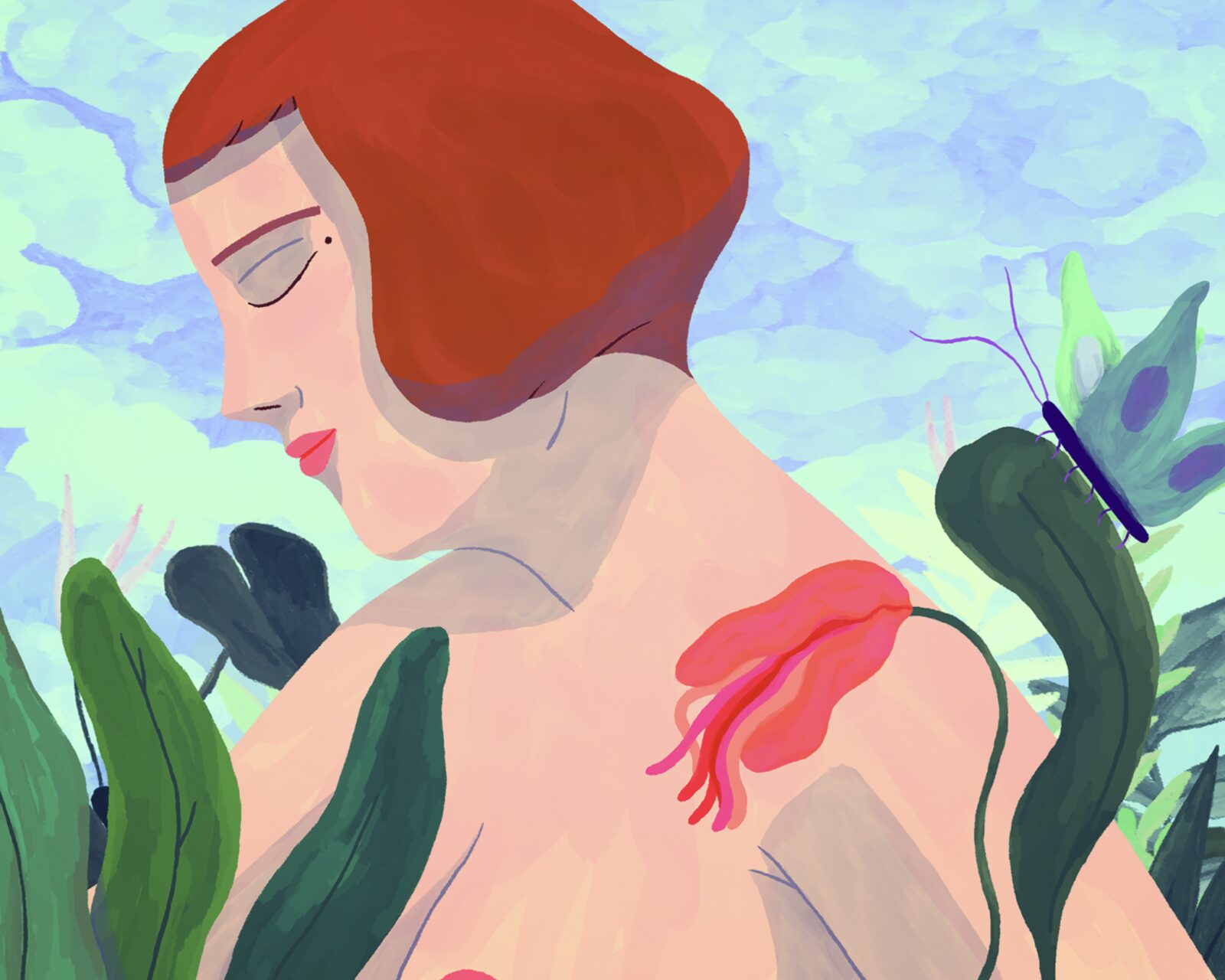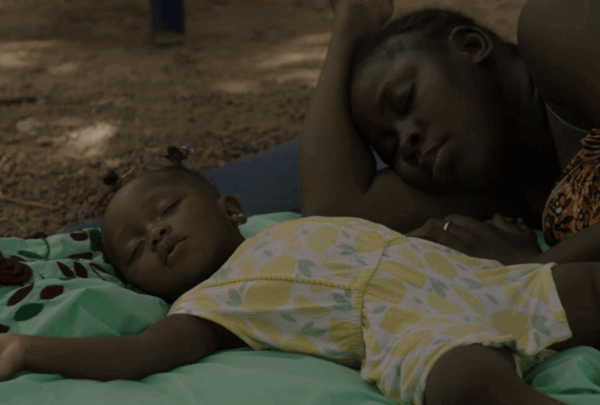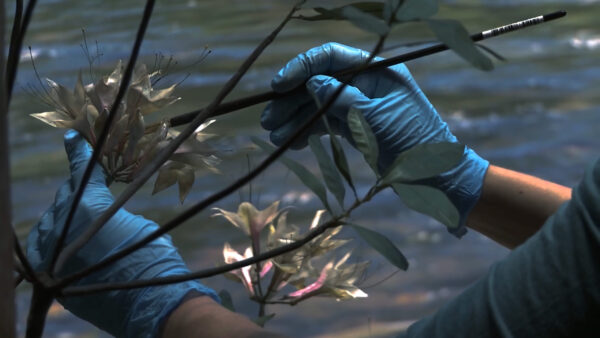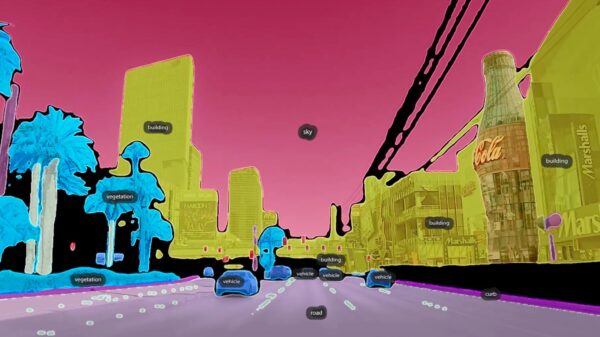Desiring Young Woman
27
Feminism and sex triumph at the same time in Flóra Anna Buda’s big winner of the Cannes, Annecy, and Sarajevo short film prizes.

In dreams, we are at our most vulnerable. Cinema has long since made use of its similarity to dream states—the way time unfolds, the role of editing that doesn’t exist in waking life, the darkened room—but more often than not, animation has been sidelined in such comparisons. Perhaps because of its inherent stylistic difference from “real life”, or maybe due to its narrative freedom, one can say that animation is even closer to dreams than other forms of cinema. In Flóra Anna Buda’s 27 (the big winner of the Cannes, Annecy, and Sarajevo short film prizes), dreaming, daydreaming, and desire play a vital role, alongside erotic imagery and LGBTQ themes.
Buda is Hungarian but currently works in France, a fact that enables her to explore these facets of eroticism and sexual identity freely, to the enchanting degree she does. Nevertheless, she is a vital part of a new generation of Hungarian animators who came out of Budapest’s prestigious MOME (Moholy-Nagy University of Art and Design). Buda’s previous film and MOME thesis, Entropia (2019), garnered a Teddy Award at the Berlinale. A promising professional start as such will only support Buda in her fearless approach to untangling the knots of female sexuality and the many—some exciting, some scary—ways of being a woman in this world.
27s beginning recalls a porn film’s prelude: two officers notice Alice injured and asleep next to her bike in a plain field. Tisking, they ask for her ID, and in their soft voice, suspicion reads as excitement—a young woman whose credit card is spotty with last night’s coke is now in trouble. In porn, such predatory settings are stripped of their abusive narrative arch when the one in trouble is desiring. Alice whispers a suggestion into the policeman’s ear to “figure something out” and promptly starts undressing. The pale blue sky frames these figures as they tower next to the other in medium shot and close-up, with body parts in focus and nudity in frame, to form an erotic whole. Depicting sexual pleasure, stylised desire, and what turns out to be a sex dream as an opening is a statement. We don’t know much about Alice yet, but we know what turns her on.
With this perspective in mind, everything else becomes secondary. The colours of desire are bright: desire sees in close-ups, desire wiggles and contracts, as the curvy lines of those animated faces and bodies touch and overlap. As the scene moves from the dreamscape to Alice masturbating in her room, the yearning carries over to contrast with the darkened colours and the composition of a ‘real’ world and its confinement. As the protagonist’s little brother bursts in to disrupt her private moment, we, the audience, feel the awkwardness of this proximity. It’s the unfortunate situation: adulthood no longer entails housing security as it did for our parents’ generation, and the housing crisis is real, hitting young people hard. Alice still lives with her parents. This sharing (when prolonged) often strips one of personal autonomy. Suddenly, as in 27, waking life looks gloomier and welcomes slipping into teenhood again, even if you left it long ago.
Imagination and reality are not necessarily enemies, but a gap can divide them. The size of it can be negotiable. For Alice, how her fantasies and the real world interact is a healthy escapism that helps her wake up with a smile on her face. As a result, the protagonist is present mostly through her desires—which never feel the slightest bit unfulfilled—a beautiful way to make a character vivid. She is shy yet unashamed. She drinks, parties, loses herself in music, does coke, and dances some more. None of her actions require introspection or questioning, and the ease with which she waltzes through people and situations is due to her own sense of liberation. In spite of her restrictive familial and economic situation, she lets loose. This sensual freedom makes it all the more endearing when, at the film’s end, she politely asks the officers not to tell her parents about her drinking, party drugs, and bike accident. The laughter she encounters is funny in a sobering way: she is, after all, only 27.
Buda’s talent, in addition to the layered, hand-drawn animations and particularly rich use of warm colours and undertones, is in making reality the material of dreams and longing. Out of what can be considered a banality—arousal or the housing crisis—she fashions a spectacular, riotous world where adolescence and adulthood coalesce. But instead of succumbing to the confusion such a mixture might produce, 27 prefers to play with it. Sometimes, not knowing, not fitting in with societal plans and the plans you have for yourself can be a blessing in disguise. Especially when you’re guided by a deep connection with yourself, your body and emotions. What we immediately recognise in Alice is that she’s whole, contradictions and all. Flóra Anna Buda’s radical honesty presents viewers with a character we can both admire and identify with because she sees desire as an opening gambit rather than something hidden. It’s inspiring. In 27, feminism and sex win at the same time.




There are no comments yet, be the first!